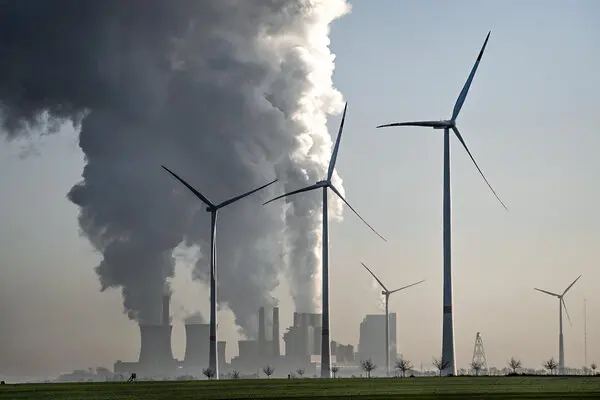Achieving the Paris Agreement’s goal of limiting global warming to 1.5°C above pre-industrial levels is slipping out of reach, according to a recent study. Despite the rapid adoption of green technologies, the effectiveness of climate policies implemented by governments is a critical factor that could determine the world’s ability to stay within this crucial limit.

The Challenge of Meeting the 1.5°C Target
The study, published in Nature Climate Change, reveals that the chances of limiting global warming to 1.5°C are increasingly slim. While advancements in green technology are impressive, the realistic barriers to implementing climate policies in various countries may make this target unattainable.
Lead author Christoph Bertram, an associate research professor at the University of Maryland and a guest researcher at the Potsdam Institute for Climate Impact Research, states, “Limiting peak temperature to below 1.5°C is not possible with even moderate likelihood anymore.” Bertram and his team utilized a series of models that factored in limitations such as the effectiveness of policymaking and regulation, revealing the grim reality.
A Sobering Prediction
The study warns that even under the most ambitious climate mitigation scenarios, the likelihood of staying below 1.6°C is only 50%. When realistic constraints, such as governments’ capacity to enforce policies like carbon taxes, are included, this probability drops to a mere 5-45%.
The world must brace for the possibility of overshooting the 1.5°C target by at least one, and possibly several, tenths of a degree.
Policy, Not Technology, Is the Roadblock
Bertram emphasizes that the recent surge in low-carbon technologies, such as solar, wind, and electric vehicles, means that technological limitations are no longer the primary issue. “In North America, Europe, and China, there is significant potential to accelerate emission reductions if the right policies are enacted,” he notes.
However, the study highlights a significant gap in government action. Many countries, especially those with lower incomes, lack the infrastructure and bureaucratic systems necessary to implement effective decarbonization policies. This deficiency severely hampers their ability to rapidly reduce emissions.
Global Cooperation Is Essential
The study calls for increased international support to help lower-income countries build the institutional capacity needed for effective climate action. Bertram stresses that even limiting warming to 1.6°C will require substantial political will from wealthier nations.
The European Union, for example, needs to accelerate its green transition, particularly in sectors like transport, buildings, and industry. Leading in technologies such as heat pumps and electric vehicles can lower costs and facilitate the global deployment of these solutions, aiding other countries in their decarbonization efforts.
In conclusion, while technology continues to advance, it is the capacity and willingness of governments to implement and enforce climate policies that will ultimately determine whether the world can keep the 1.5°C target alive.
COMMENTS